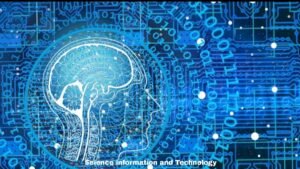In this blog’s post we are going to discuss about the Science and Information Technology. And how all these related with mission.
We are not living in a non-religious world. In a world shaped by science and technology and all faith are challenges, including the Christian. The twenty-first century can rightly called the century of science; a century dominated by scientific discoveries, ideas, and principles.
Science and Information Technology

Science and religion are two most powerful influences in our contemporary world. They play a crucial role in determining our life style, shaping, our value system, and setting our expectation level.
There are both positive and negative aspects in Information Technology. On the positive side, people can communicate each other more freely and immediately. And the ability to store, retrieve, process, and publicize information has increased.
People are also able to transcend the traditional geographical boundaries of religions. Information technology may also allow the church to reach out to people who have withdrawn from institutional religious communities.
On the other side, “virtual” contact may become more important than personal contact. Moreover, the information Technology runs the risk of increasing the gap. The gap is between who have access the technology and who have not. The rich people have innovative more technologies than the poor. And become a greater hold between the affluent and poor nations and individuals of the world.
Mission and Science (and Information Technology)
The Mission can still characterize as the enterprise that brings the light of the gospel to people; who live in the darkness of not knowing the living God. And many Christians expect that the benefits of a rational order of life; which in large measure created by science; will follow as part of the changes related to embracing the gospel.
Science and mission seem to go hand in hand in winning the world, while science and Christianity are at odds at the mission’s home base. But as we articulate the message of the gospel for a post-Christian, knowledge-intensive society, we must propose anew the issue of the role and authority of science in the culture.
Science has grown to gigantic proportions; and carry out by large bureaucratic organizations in a complex web of relationships; involving government industry the military and the educational sectors.
The missionary enterprise must carefully consider the relationship between the means and ends of mission. For the most part, missionary work now involves the technical, communicational, and organizational means of scientific society.
Effective use of these means requires some acquaintances with their techno scientific development.
Mission and (Science and) Information Technology
It is important to remember that technological advance is not wrong, but it is good to have technological development that will help us to heal and do well. In other words, we have to use technology; but at the same time we also have taken responsibility for making sure. It is use for good purposes and not for unethical ones.